Opening Up Orthodox Judaism
Gaining visibility in its eighth year, Yeshiva Chovevei Torah presents challenge to centrist and right-wing elements of Orthodoxy.
by Steve Lipman, Staff Writer
In a small classroom across Broadway from Columbia University, Moshe is having a meltdown one recent afternoon.
Moshe, in his late 20s, is reluctantly unburdening with his rabbi about his drinking problem. Depressed, almost suicidal, unhappy with his family life, Moshe talks in shrugs and sullen grunts. The rabbi, leaning forward in his chair, listens sympathetically. After a while, he convinces Moshe to make an appointment the next day with a mental health professional. "It’s not going to help,’ Moshe declares. "Rabbi, life’s not getting any better."
Moshe and the rabbi grow silent. And a group of young men sitting around a large table in the classroom break into applause.
Like the other men in the room, Moshe (not his real name) and the rabbi (not a real rabbi, yet) are rabbinical students, taking part in a pastoral counseling class at Yeshivat Chovevei Torah Rabbinical School. To learn pastoral skills, students assume the roles, assigned at random, of rabbi and congregant.
The role-playing, say the founders of the eight-year-old, Modern Orthodox school that is housed in the Robert K. Kraft Family Center for Jewish Student Life, is one of many distinctive marks of an institution that combines the standard curriculum of a yeshiva with such innovations as leadership retreats and psychiatrist-directed process groups and fund-raising training.
Chovevei Torah (Hebrew for lovers of Torah), the first major Modern Orthodox rabbinical training center established in this country since Yeshiva University more than a century ago, is the creation of Rabbi Avi Weiss, spiritual leader of the Hebrew Institute of Riverdale, better known in many circles for his liberal brand of Orthodoxy and his decades of political activism on behalf of Soviet Jewry, Israel and other causes.
The yeshiva has grown from its original nine semicha students to 45 today, while drawing criticism in some parts of the Orthodox world. Rabbi Weiss’ vision of an "Open Orthodox Judaism" — open taking a capital O to brand it as a movement, like Modern or Centrist Orthodox Judaism — that grants respect to feminism and other branches of the religion has earned the opposition, often clandestinely, of other organizations.
YCT rabbis in some cities report opposition when they try to join local rabbinical boards. The yeshiva withdrew its application for its ordainees to join the Rabbinical Council of America, the central rabbinical group of the Modern Orthodox movement, when it became apparent that the application would be denied. And the National Council of Young Israel recently ruled that any candidates to head its 150 congregations had to submit to a screening by a National Council-appointed committee; the decision was seen as an attempt to keep Chovevei Torah rabbis out of Young Israel synagogues.
Young Israel’s action is the latest implicit recognition of the growing viability and visibility of Chovevei Torah. Many view the creation of Chovevei Torah as an implicit critique of Yeshiva University’s perceived shift rightward, an attempt to produce pulpit rabbis able to relate to and lead Orthodox congregants firmly entrenched in American society.
The opposition, says Howard Jonas, a Riverdale businessman and philanthropist who is a major financial supporter of YCT, is "a nuisance," not a hindrance. "It’s an unsuccessful campaign. We have more people applying [for enrollment] than we can accept. We have more jobs [open to Chovevei graduates] than we have graduates."
Rabbi Weiss agrees. "I really don’t take note" of the opposition, he says. "It has virtually no impact on us."
YCT enrollment this year is 45, mostly clean-shaven men in their 20s who favor large, colorful knitted kipot. The school has emerged as a leading producer of Modern Orthodox rabbis for pulpits, teaching positions in day schools and Hillel leadership posts on college campuses, providing competition not only for men ordained by YU, but by haredi rabbis who had taken many of those jobs in recent decades.
"We are about recruitment, education and placement," says Rabbi Weiss, who was ordained by Yeshiva University in 1968 and taught at YU’s Stern College for Women for decades. "The mission of the yeshiva is to produce leaders."
The rabbi stresses that YCT is a rabbinical school, not a theological seminary. Its emphasis is not
A constant presence at the yeshiva, usually dressed in a cardigan sweater and no tie, Rabbi Weiss is available to confer with students. But he has delegated day-to-day operations to Rabbi Dov Linzer, whom Rabbi Weiss recruited a decade ago from the kollel (an advanced learning program) in Boca Raton, Fla., and to other advisory committee members and teachers, including Rabbi Saul Berman, founder and head of the now-defunct Edah, an organization associated with the liberal stream of Orthodox Judaism.
Together, the faculty designed the yeshiva "from scratch," Rabbi Weiss says, just as psychiatrist Michelle Friedman designed the pastoral counseling program.
Torah lishma, learning Torah for its own sake, but an education centered on the needs of a community rabbi. The men ordained by Chovevei Torah are expected to serve in pulpits or classrooms, not, as is the case at many other yeshivot, to become lawyers or accountants with an extensive Talmudic background.
Not A One-Man Yeshiva
"I’m not the yeshiva," Rabbi Weiss cautions.
"There is a tendency to identify a yeshiva with its founders," says Rabbi Tsvi Blanchard, a CLAL staff member who teaches Jewish philosophy and spirituality at YCT. "The yeshiva is much bigger than any one person. The guys are not Avi Weiss clones.
"I had the same concerns when I came here five years ago," Rabbi Blanchard says. Like him, many of the rabbis teaching at YCT come from haredi educational backgrounds.
Rabbi Weiss, says third-year student Devin Villarrea, "explicitly made a conscious effort to keep his politics out of the yeshiva."
All the students know Rabbi Weiss’ activist background, but activism is not part of the official or unofficial curriculum, students say. "No one yet has taught me how to chain myself to a door," says Seth Winberg, a first-year student, an allusion to Rabbi Weiss’s many protests at places like the United Nations or the convent at Auschwitz.
Rabbi Linzer, who was recently promoted from the school’s rosh yeshiva to dean, notes that "from the outset we recognized that a central role of a rabbi today is the pastoral role. We have heard rabbis in the field say to us, ‘I never got the training you guys are offering.’"
During a pre-Chanukah inspirational speech in the YCT beit midrash last week, Rabbi Weiss urged his students to strongly consider working outside of the Greater New York area after ordination. "There is a community that exists outside the tri-state area," he said. "We’ve got to create a culture of going out of town. We have a responsibility to these communities."
Think Peace Corps, Rabbi Weiss said.
The students, sitting in front of laptop computers, listened respectfully. If they are like past ordainees of the school, most will end up out of town; according to a map produced by Chovevei Torah, its rabbis have found positions in congregations across the U.S. and Canada, many in prominent synagogues.
The beit midrash, a large hall on the sixth floor of the Kraft Center, looks like any other yeshiva study hall, lined with bookcases that bulge with the Talmud and the Code of Jewish Law. The learning schedule also is standard – morning to night classes in Gemara and Jewish law, and chavruta sessions with learning partners.
That, in addition to the mandatory pastoral counseling and social action classes designed to help produce rabbis who can handle the demands of 21st century congregations.
"This is an Orthodox institution," Rabbi Weiss says.
"This," says Rabbi Blanchard, "is a classic semicha program. It’s definitely not an easy semicha. It’s not graduating half-baked kiruv (outreach) rabbis. We would not have credibility [in the wider Orthodox world] if we did not offer the same semicha program,"
Critics of Chovevei Torah, who tend to critique the school’s level of Jewish learning or its commitment to halachic standards, do not "have a clue what is going on internally at YCT," says an observer who is familiar with it and Yeshiva University. He asked that his name not be used.
The liberal reputation of Rabbi Weiss and of Rabbi Linzer, particularly in their willingness to engage with non-Orthodox denominations, "led to the sense that they are crossing the line," that Chovevei Torah offers an education that is not consistent with normative Orthodox Judaism, the observer says. "Some of this is perception rather than reality. It’s not [about] what’s going on in the beit midrash."
Has the success of Chovevei Torah had any effect on Yeshiva University, pushing its policies to the left?
"I don’t see it – in the same way that YU has not changed in response to Lander, which in on the right," the observer says. He is talking about the Lander College for Men, a seven-year-old Orthodox institution in Kew Gardens Hills, Queens, that combines a college education with a yeshiva program.
For most congregations around the country in the market for an Orthodox rabbi, the friction between Chovevei Torah and other Modern Orthodox institutions is strictly a New York City affair.
"In the end, they always hire the best candidate," Jonas says.
Roberta Goodman, former president of Congregation Sherith Israel in Nashville, says her synagogue received pressure – she is reluctant to give details – not to hire Rabbi Saul Strosberg, who was ordained by Chovevei Torah, for a pulpit opening two years ago. The rabbi says he also was urged, "based on the fact that I went to Chovevei," to withdraw his application.
He did not withdraw. He was hired. "We determined that we needed to hire the person who was going to meet the needs of our community," Goodman says. "Hands down, it was Rabbi Saul. It was the best decision we ever made. He is warm. He is able to relate to everyone. The community loves him," she said, calling him "the living embodiment of Ahavat Yisrael [love of one’s fellow Jews]."
Rabbi Michael Broyde, a prominent pulpit rabbi in Atlanta and a dayan, or decisor, on the RCA’s Beth Din of America, wrote a public letter several years ago questioning Chovevei Torah’s "inter-denominational interactions within Judaism," as well as its "interfaith cooperation" and views on working with gays and lesbians.
He declined to be interviewed for this article. But a year and a half ago, when Rabbi Broyde, a founder of Atlanta’s Torah Mitzion Kollel, needed to hire a rosh kollel to lead the institution, his choice was Rabbi Zev Farber, who was ordained by Chovevei Torah.
I do not intend to enter into the subject of the "Orthodoxy" status of Chovevi Torah or review the well known history of events that have characterized the recent past of the school. There are plenty of places online to engage in that discussion.
What I do wish to look at is the nature of the above article and whether or not it contributes to the general discussion or has, possibly another agenda.
My initial reaction is that a school which seeks recognition as an "Orthodox Yeshiva" (albeit - Open?) does not support it's cause with an endorsement article from what is arguably NY's most "conservativish" of Jewish newspapers known outside of NY.
What I do wish to convey is my anxiety over an article which seems to highlight and glorify itself over the rifts in the Orthodox world, pointing out Yeshiva University (implicitly centrist) being pulled from Lander (described as on the "right"). No where is the equation concluded that YCT is on the "left", only Rabbis Weiss, Linzer and Berman earned that title. The angle of the writer can be seen in the discussion of the National Council of Young Israel's decision to have a national review of applicants seeking Rabbinic positions in one of their member congregations. The article pains itself to say this is aimed at YCT. Maybe, and if this is the case, so what?
Why didn't the writer say the same about the Israeli Chief Rabbinate discontinuing automatic recognition of North American "Orthodox" conversions? Is it possible that the Rabbinate was led to this action due to reports coming from the US regarding YCT? Is the argument a fair one? Should it have been discussed in the article? Is it a sign of strength or weakness within “Orthodoxy” that these conversations are taking place?
The writer chose to dwell on the disagreements within “Orthodoxy” with minimal attempt to actually dive beneath the surface. The best example is the RCA non-vote. The writer was satisfied to merely report that Chovevi's application was withdrawn due to a lack of support for it’s being included amongst the gatekeepers of “Modern Orthodoxy“. Why? No help from the article on this point. Is it possible that “Orthodoxy” is flourishing and can demand particular standards be met for acceptance? Is it possible that “Modern Orthodoxy” is finally blazing a trail back to it's roots and away from it's long drift toward being defined as in “the eye of the beholder“? The implication that the RCA non-vote drew little attention outside NY is far from true. It drew little attention in those places where “Orthodoxy” is not a well defined concept, religiously or politically.
Now I am in the camp of those who prefer to avoid labeling Jews which may seem to be a contradiction to those who read my posts and in particular this one. But since this article seeks to shine light on the differences within the flow of “Orthodoxy”, I find myself drifting in the opposite direction. The defining of channels of “Orthodox” leaves a reader with the need to separate rather than unite; Lander is the right, YU is the center/mainstream, YCT is left, RCA is mainstream/right, NCYI is right, etc. As I have presumed, this is the purpose of the article. YCT has not helped it’s cause agreeing to cooperate with this writer and newspaper. Those who sought to help YCT have hurt it’s case for widening it’s acceptance by agreeing to be interviewed.
I have to make an additional observation concerning the left in general bringing a closure to the criticism of the New York Jewish Times and fitting nicely into the discussion . That is, we have been discussing in a larger sense the idea of an unclearly defined “open” yeshiva. The writer, IMO wanted to expose “Orthodoxy’s” woes. What then is “open” and to whom? The liberal truth test for which the writer failed is to acknowledge that differences are not necessarily subject to good vs. bad. When it comes to liberals, my way is the only way. True “openness” in thought allows for a free flow of ideas, analysis of strengths and weaknesses. The cream then rises to the top. The article (more of an editorial) has an opinion and seeks to discredit those who disagree.
My advice to Rabbis Weiss, Linzer and Berman:
1) Change the marketing piece. drop the meaningless word “open”. This has been antagonistic from the outset and insulting to the many thousands involved in “inreach” and counseling years before Chovevi was ever conceived
2) Stress your similarities not differences. The Jewish world has enough tension, follow your own mission and help to unify Jews and stop dividing with self-righteous (imho) pretensions of re-defining “Orthodoxy”
3) Keep the Catholics out of the Beis Midrash - no offense to Catholics intended. If you wish to be “modern Orthodox” at the very least pay attention to those things that HaRav M. Soloveitchik OBM strongly discouraged and avoid them.
4) Lower your profile for awhile. Credibility/peacemaking often comes after a period of quiet. Quiet is good for the soul.
5) Acknowledge that YCT’s campaign of acceptance has contributed to strained relationships between “Orthodox” institutions. Commit to damage control and repair of the breach.
There can be room within a wider umbrella of “Orthodoxy” for various channels and approaches. Rabbis are needed for many different positions within “Orthodox” institutions. Jewish organizations have different needs. Like those Jewish institutions mentioned in the article, some may find that YCT graduates fit their particular cultural liking (leaving aside for the now the argument made in my previous post concerning the membership of “movements” dictating practices either on the micro level of the individual institution or the larger “movement” itself and the implication of this for ‘Orthodox’ organizations). What is clear however, is that for a wider umbrella of “Orthodoxy” to function the role of the gatekeeper (RCA in this case) must be upheld. The setting of standards is crucial in order to produce harmony and unity for all Jews. Without, we risk returning to something that American Jewry resembled before the national Orthodox associations came on the seen, namely, local autonomies; questions concerning the halachic status of geirus, kashrus, eruvin, mikvas, etc. This is not the goal of YCT, I believe but an outcome which could result from it’s not changing course and a point well worth noting. Far fetched? Maybe. Possible? yes.
Now on a less serious note, some readers may have noticed that YCT recently ran a flash advertisment on the Israel National News website. Below, see a screen shot of the ad. Notice anything unusual? No rewards for correct answers will be given but leave a message if you like

EDITED - 26 DECEMBER
YCT ad has been fixed:

16 January: Blogger seems to have lost the original advertisement so I have re-uploaded the picture:

















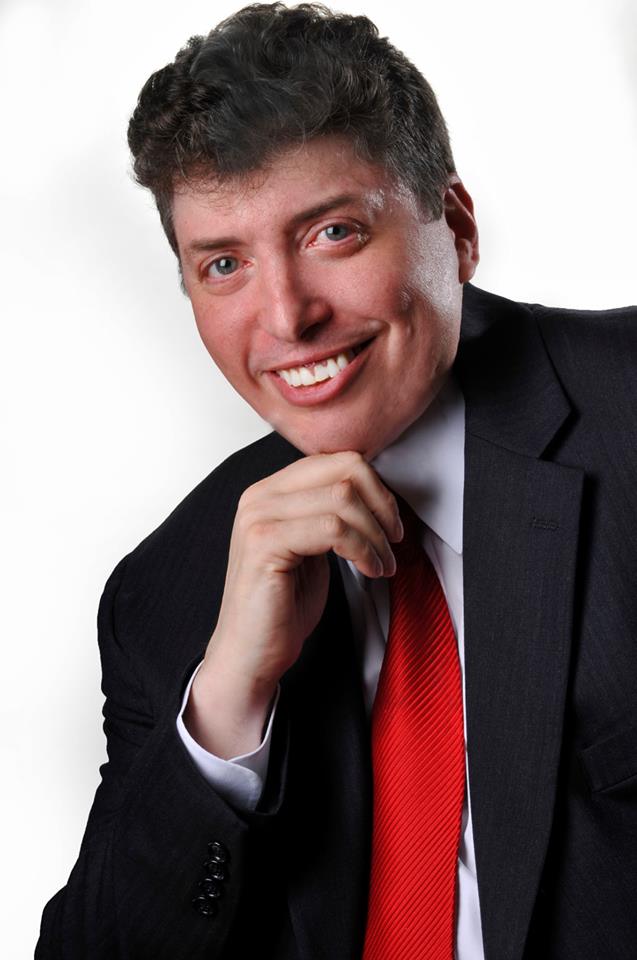



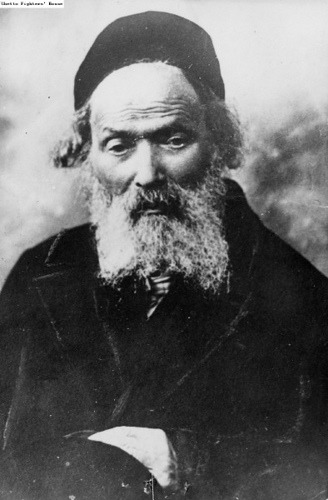


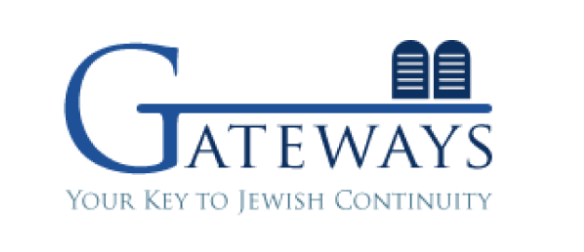













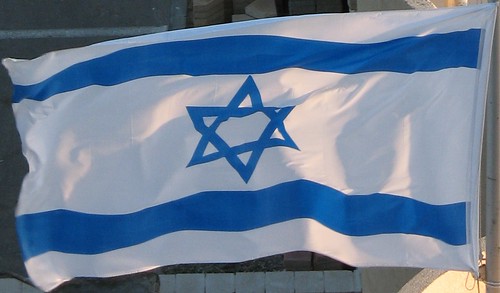
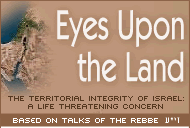




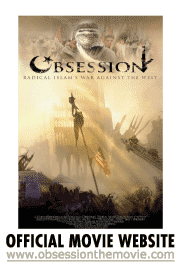





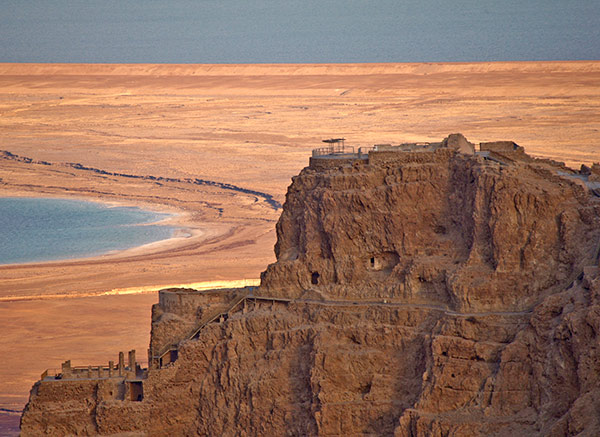
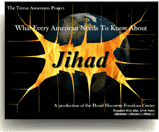
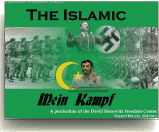




0 comments:
Post a Comment